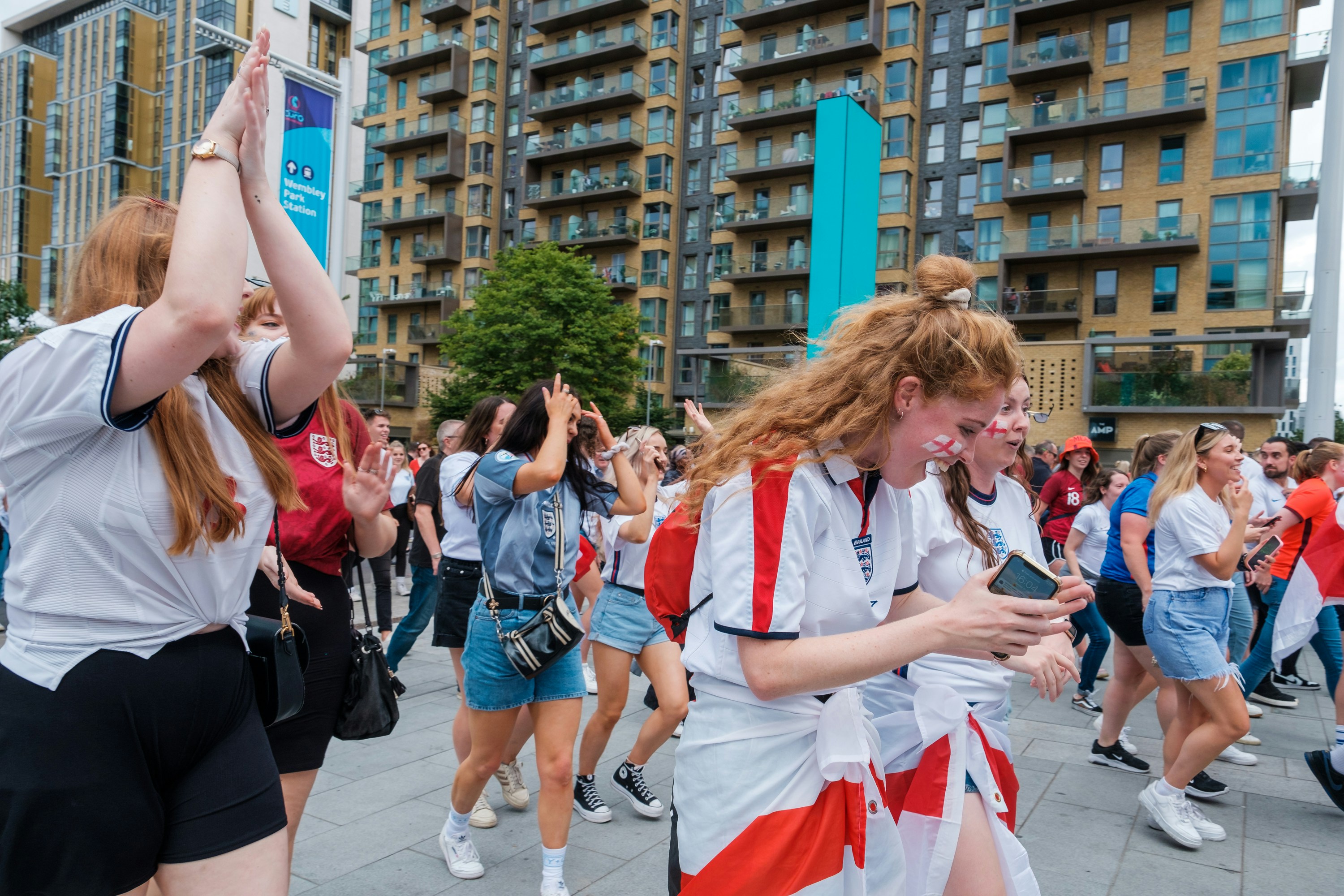
Image - Ehimetalor Akhere Unuabona
On the 27th of July, over 12 million people flocked to tv screens to witness the Lionesses defend their Euro’s title in a nail-biting final against Spain. While most of the country revelled in the euphoric victory, a concerningly large proportion of people, male and female, took to social media to vocalise their disgust for the team and for women’s football in general. It would be easy to look at 2025 Britain and believe it to be a progressive and relatively equal society, but the Lionesses’ success has revealed how far from that ideal world we really are.
As a formal football player myself, I’ve loved watching the popularity of women’s football increase and I often find myself rewatching clips of the Lionesses on social media. This has always been an enjoyable experience until during the week following the final, when I made the mistake of opening the comments.
“Bonnie Blue from temu”.
“The dishes were so nice, we had to clean them twice”.
“Increase the pay gap”.
“Kitchen derby”.
“It’s embarrassing now. The way they force women’s football into everything is crazy”.
“Didn’t even know they played”.
Each of these comments had garnered thousands of likes. This isn’t exactly the celebration of women that I’d have hoped for in a supposedly equal society. Football appears to expose the worst of Britain. Much like the racism that prevailed following the final of the men’s final in 2021, the women’s Euros provided an opportunity for the often-concealed misogyny in Britain to reveal itself. With the dominance of social media, views that are unacceptable in public can now be expressed freely, and Britain’s hateful undercurrents of misogyny can be broadcast from behind the safety of a phone screen, finding support from likeminded people.
The issue of misogyny unfortunately does not exist solely on social media and in women’s football. It also exists in politics. Donald Trump is known for his derogatory comments about women. He called Kamala Harris “retarded”, called Nancy Pelosi “as crazy as a bed bug”, called Whoopi Goldberg “filthy, dirty, disgusting” and so on. The president portrays a version of hyper masculinity that relies on the belittling and degrading of women. Regarding policy, Trump’s administration has revoked executive orders that protect access to reproductive healthcare, threatened DEI programmes, eliminated the gender policy council and more. He is waging a war against women, thus contributing to this wave of misogyny that social media is highlighting.
It’s not just Trump either. Nigel Farage has congratulated Trump’s plans to eliminate DEI programmes and spoke in a March 2025 interview about how women “make very different life choices to men” and won’t make the same sacrifices men will, hence why there are more men in leading business positions. Reform also repeatedly promote traditional values and ideals of strength and masculinity. The party have found huge popularity with young men, thus promoting these positions to young people in an alarming way.
Any conversation about misogyny is incomplete without mention of Andrew Tate of course. The influencer garnered huge popularity, particularly amongst young men, by combining messages of wealth and success with a deeply sexist ideology. Horrifyingly, a 2023 YouGov study found that 1 in 4 13–15-year-old boys in the UK had a positive view of him. Although the influencer has since experienced a dramatic fall from grace, his message will undoubtedly have had lasting impacts on young impressionable minds, poising a generation of men with misogynistic opinions.
This then begs the question of whether misogyny is increasing. I believe it is. A 2025 pol by Amnesty International UK discovered that 73% of Gen Z social media users witness misogyny online, while 70% believe it is increasing in frequency. The NASUWT (teacher’s union) have reported on rising misogyny in schools, worsened by children’s access to social media, and have pointed to female teachers bearing the brunt of pupil misbehaviour.
In opening the comments sections of TikToks about the Lionesses, I have been forced to shed my illusion that misogyny is almost extinct, at least in Britain. Despite notions of equality, there is a vicious sexist undercurrent that, in circumstances such as the Euro’s victory, decides to rear its head (or rather, its keyboard). In the last few years, with the surge of Andrew Tate and the rise of right-wing populism, misogyny has permeated society in a way that it hasn’t in a long time. Toxic politicians and social media have allowed these views to become increasingly mainstream, to the extent that commenting “kitchen derby” under a clip of women’s football feels valid. Misogyny is persevering in Britain, worsened by social media and legitimised by many of today’s political figures.
Rosie is a second year Politics and International Relations student at the University of Manchester. She's on the committee for the UoM politics society, and is interested in justice, the far-right and climate. Outside of politics I enjoy singing, reading, baking and travelling whenever I can.